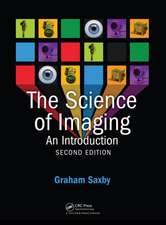Towards Adaptive Spoken Dialog Systems
Autor Alexander Schmitt, Wolfgang Minkeren Limba Engleză Paperback – 15 oct 2014
Beginning with the foundations of machine learning and pattern recognition, this monograph examines how frequently users show negative emotions in spoken dialog systems and develop novel approaches to speech-based emotion recognition using hybrid approach to model emotions. The authors make use of statistical methods based on acoustic, linguistic and contextual features to examine the relationship between the interaction flow and the occurrence of emotions using non-acted recordings several thousand real users from commercial and non-commercial SDS.
Additionally, the authors present novel statistical methods that spot problems within a dialog based on interaction patterns. The approaches enable future SDS to offer more natural and robust interactions. This work provides insights, lessons and inspiration for future research and development, not only for spoken dialog systems, but for data-driven approaches to human-machine interaction in general.
| Toate formatele și edițiile | Preț | Express |
|---|---|---|
| Paperback (1) | 639.08 lei 6-8 săpt. | |
| Springer – 15 oct 2014 | 639.08 lei 6-8 săpt. | |
| Hardback (1) | 645.79 lei 6-8 săpt. | |
| Springer – 19 sep 2012 | 645.79 lei 6-8 săpt. |
Preț: 639.08 lei
Preț vechi: 751.86 lei
-15% Nou
Puncte Express: 959
Preț estimativ în valută:
122.29€ • 130.77$ • 101.96£
122.29€ • 130.77$ • 101.96£
Carte tipărită la comandă
Livrare economică 18 aprilie-02 mai
Preluare comenzi: 021 569.72.76
Specificații
ISBN-13: 9781489991683
ISBN-10: 1489991689
Pagini: 268
Ilustrații: XIV, 254 p.
Dimensiuni: 155 x 235 x 14 mm
Greutate: 0.38 kg
Ediția:2013
Editura: Springer
Colecția Springer
Locul publicării:New York, NY, United States
ISBN-10: 1489991689
Pagini: 268
Ilustrații: XIV, 254 p.
Dimensiuni: 155 x 235 x 14 mm
Greutate: 0.38 kg
Ediția:2013
Editura: Springer
Colecția Springer
Locul publicării:New York, NY, United States
Public țintă
ResearchCuprins
Introduction.- Background and Related Research.- Interaction Modeling and Platform Development.- Novel Strategies for Emotion Recognition.- Novel Approaches to Pattern-based Interaction Quality Modeling.- Statistically Modeling and Predicting Task Success.- Conclusion and Future Directions.
Textul de pe ultima copertă
In Monitoring Adaptive Spoken Dialog Systems, authors Alexander Schmitt and Wolfgang Minker investigate statistical approaches that allow for recognition of negative dialog patterns in Spoken Dialog Systems (SDS). The presented stochastic methods allow a flexible, portable and accurate use.
Beginning with the foundations of machine learning and pattern recognition, this monograph examines how frequently users show negative emotions in spoken dialog systems and develop novel approaches to speech-based emotion recognition using hybrid approach to model emotions. The authors make use of statistical methods based on acoustic, linguistic and contextual features to examine the relationship between the interaction flow and the occurrence of emotions using non-acted recordings several thousand real users from commercial and non-commercial SDS.
Additionally, the authors present novel statistical methods that spot problems within a dialog based on interaction patterns. The approaches enable future SDS to offer more natural and robust interactions. This work provides insights, lessons and inspiration for future research and development, not only for spoken dialog systems, but for data-driven approaches to human-machine interaction in general.
Beginning with the foundations of machine learning and pattern recognition, this monograph examines how frequently users show negative emotions in spoken dialog systems and develop novel approaches to speech-based emotion recognition using hybrid approach to model emotions. The authors make use of statistical methods based on acoustic, linguistic and contextual features to examine the relationship between the interaction flow and the occurrence of emotions using non-acted recordings several thousand real users from commercial and non-commercial SDS.
Additionally, the authors present novel statistical methods that spot problems within a dialog based on interaction patterns. The approaches enable future SDS to offer more natural and robust interactions. This work provides insights, lessons and inspiration for future research and development, not only for spoken dialog systems, but for data-driven approaches to human-machine interaction in general.
Caracteristici
Presents techniques and tools to render SDS “intelligent” and answers on how to make next-generation’s SDS adaptive, user-friendly and emotion-aware Applies novel research methods about emotion recognition and problem spotting on commercial SDS Describes how users perceive interactions with an SDS and identifies ways to automatically estimate user satisfaction at arbitrary points in a spoken human-machine interaction











